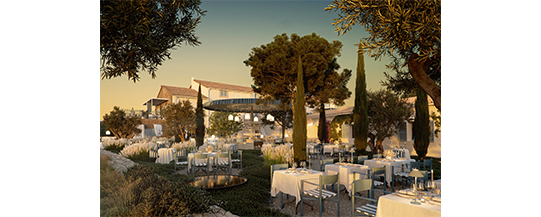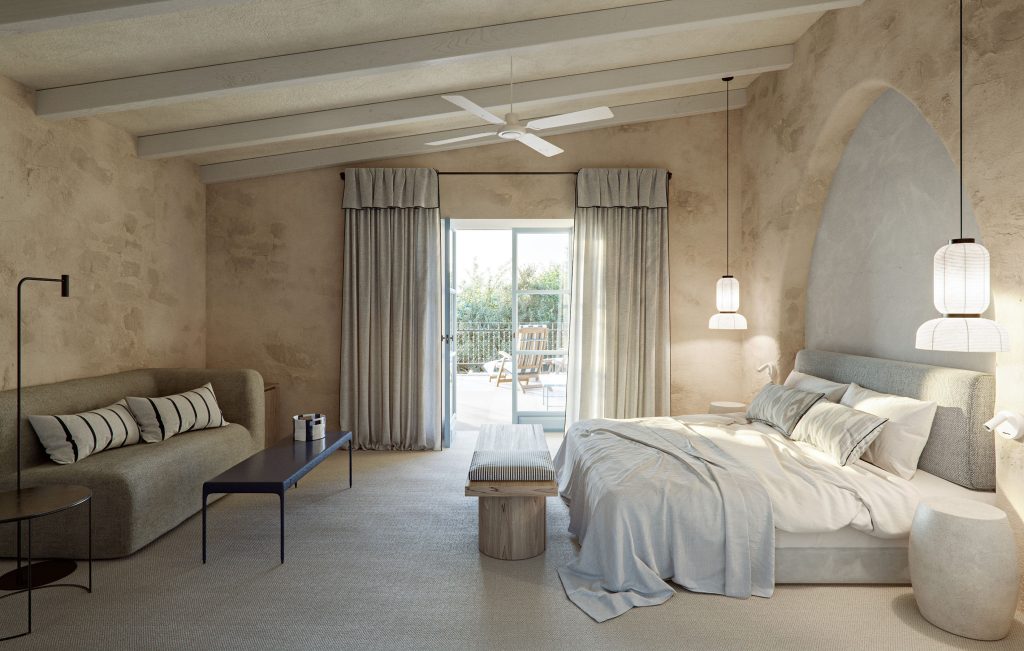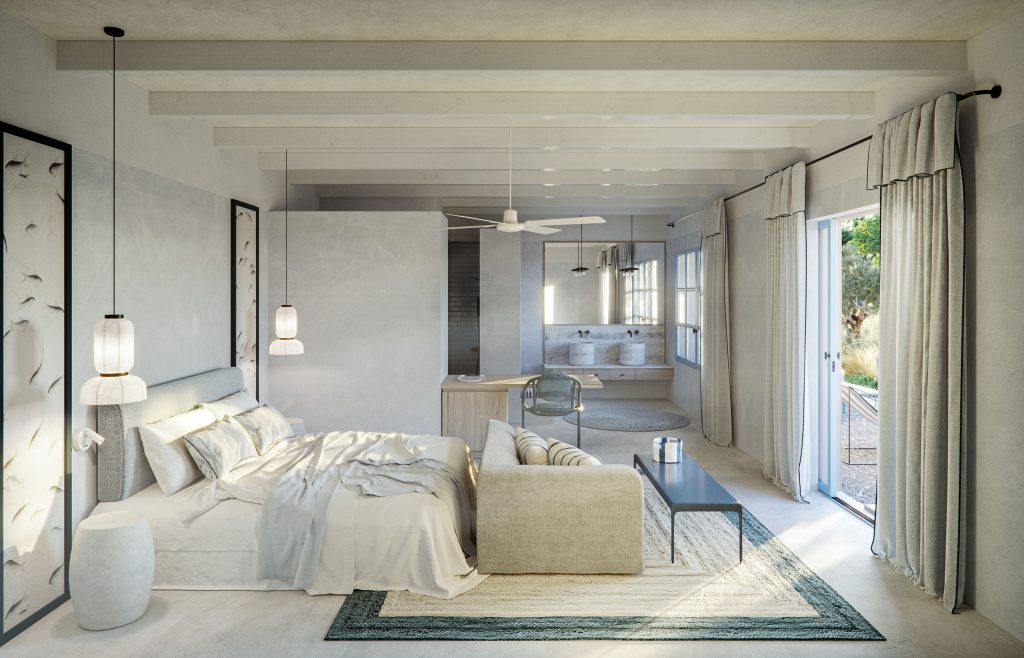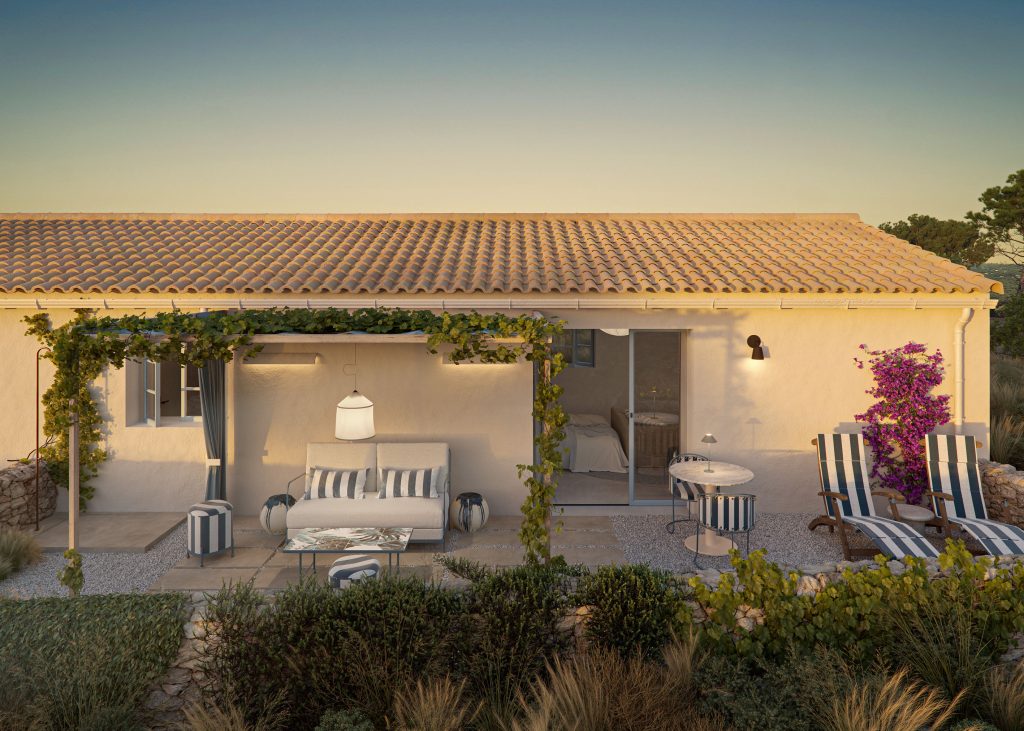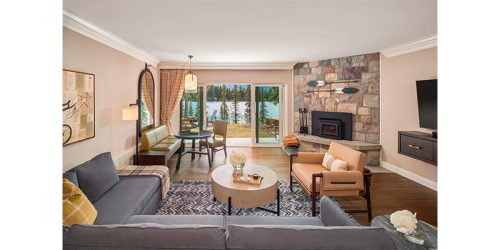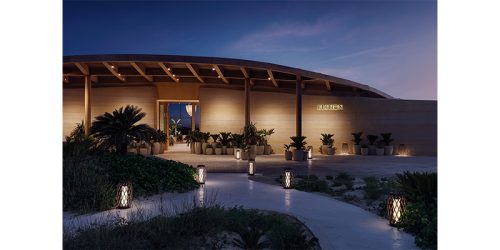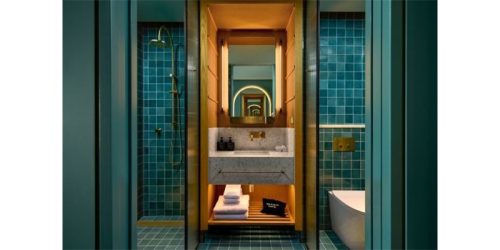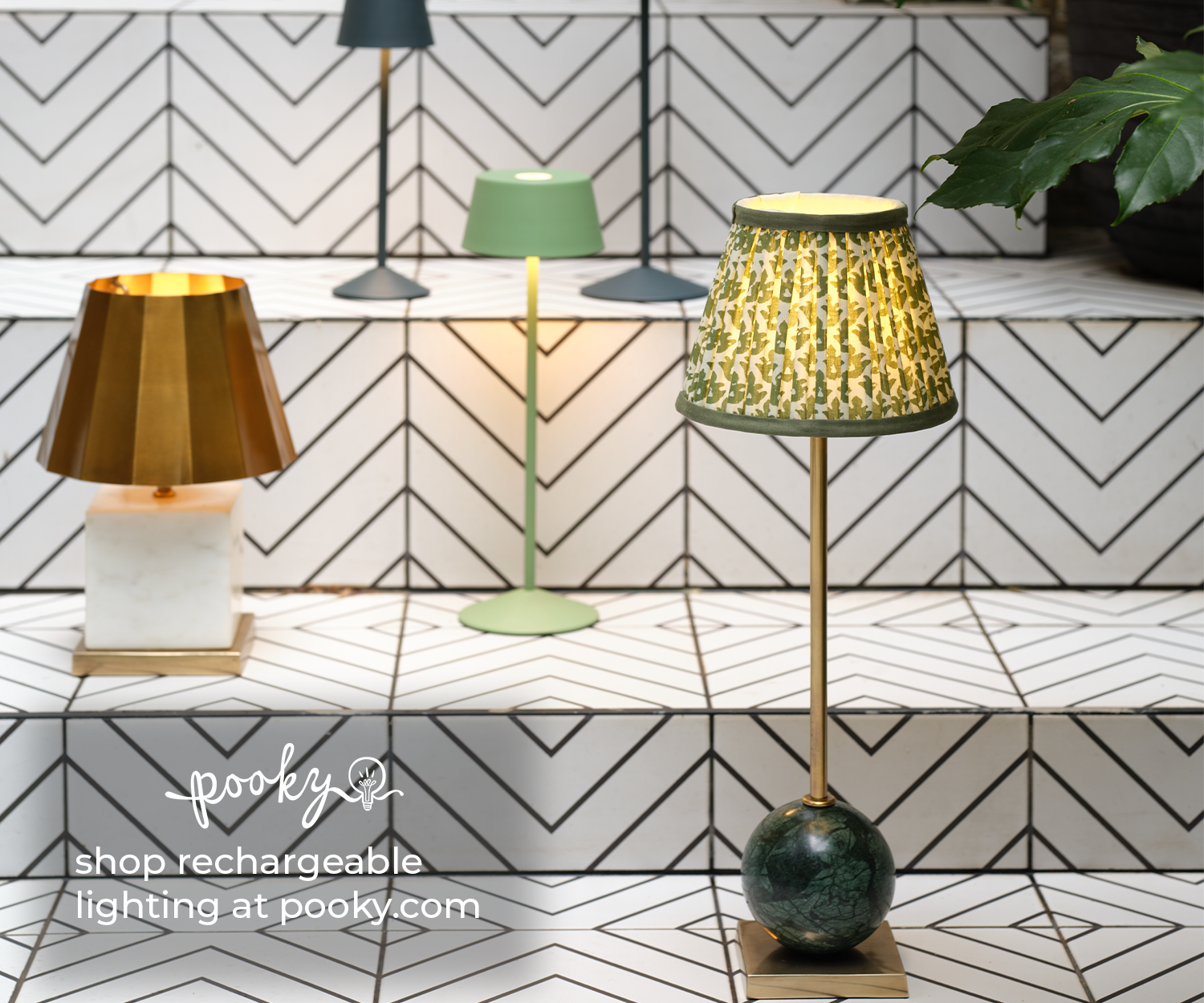Annua Signature Hotels launches Son Xotano, Mallorca
A 12th-century possessió reimagined for the present, Son Xotano invites guests into a world of Mediterranean stillness, soulful design, and quiet luxury.
After the celebrated openings of César Lanzarote, Amagatay, and Morvedra Nou in Menorca, Annua Signature Hotels returns with its most intimate chapter yet: Son Xotano, a deeply personal estate hotel nestled in the rural heartland of Mallorca. Opening 1st August 2025, Son Xotano becomes Annua’s fourth destination, and its first on the island — a timeless retreat rooted in landscape, memory, and material.
Set just outside the inland village of Sencelles and only 25 minutes from Palma de Mallorca Airport, the estate occupies a 12th-century possessió — a traditional rural manor house — surrounded by ancient olive trees, working vineyards, and lavender-swept fields. The property distills Annua’s ethos into a uniquely Mallorcan expression: design grounded in place, architecture as a form of memory, and a guest experience that favours presence over performance.
A Sense of Place — by Design
The vision for Son Xotano began with emotion. “We wanted to create a space that felt like a homecoming,” says Álvaro Sasiambarrena, co-founder and creative director of Annua Signature Hotels. “A place where every texture, every scent, every silence evokes something essential — something remembered.”
To bring this vision to life, Sasiambarrena enlisted an exceptional creative team from across Spain and the Balearics. Architectural restoration was led by ClapésPizà, a Mallorca-based studio headed by Adrià Clapés and Joan Pizà, renowned for their respectful, place-sensitive approach. Their brief: preserve the layered character of the centuries-old estate while adapting it to the needs of contemporary travellers.
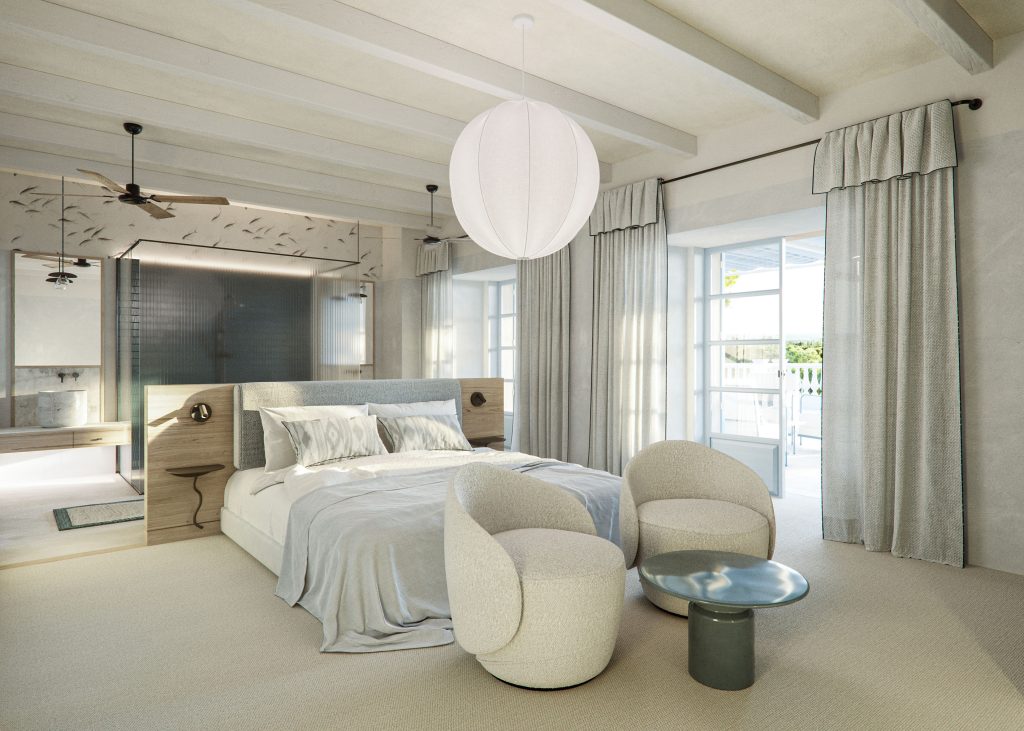
The brief was to preserve the layered character of the centuries-old estate while adapting it to the needs of contemporary travellers.
Rather than overwrite the past, ClapésPizà amplified it—restoring dry-stone walls, repointing original beams, and reintroducing historical elements like the marès sandstone arch at the entrance, quarried from the estate itself. The result is architecture that doesn’t declare itself but reveals itself: slowly, in textures, shadows, and the soft rhythm of lime-washed stone and filtered light.
Interior design was led by Virginia Nieto, a long-time Annua collaborator whose touch is both intuitive and sculptural. Drawing directly from the island’s essence and local materials — Mallorcan clay, pine, linen, and brushed metal — Nieto shaped a quietly sensorial language throughout the hotel. Inside, the palette is soft and sensorial. Light blues echo the sky. Earth tones ground the space. Every material—linen, brushed metal, local clay—has been chosen for how it feels as much as how it looks. The atmosphere is one of calm: open-plan rooms with bespoke furniture, open-sky bathrooms, private gardens, and interiors that invite pause. Many furnishings were custom designed by Nieto’s studio, blending artisan collaboration with deeply personal detail.
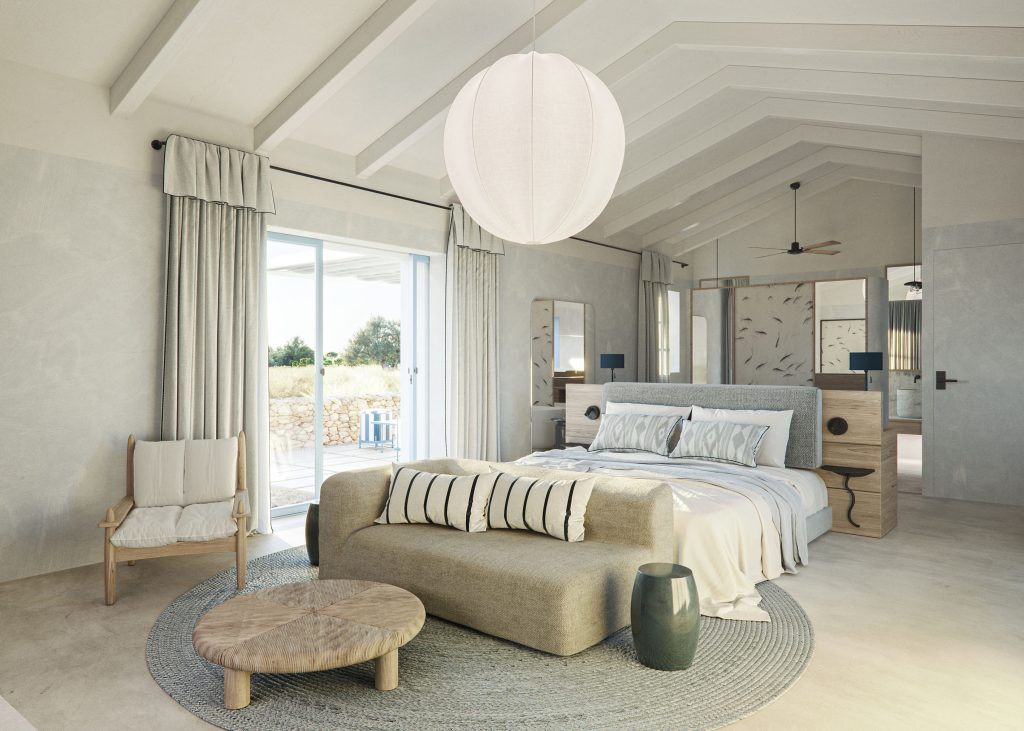
Son Xotano offers 22 guest rooms, including 14 suites, each uniquely designed yet united by a shared architectural language of natural light, noble materials, and a sensorial sense of calm.
Rooms are thoughtfully proportioned, often featuring arched windows, vaulted ceilings, or stone thresholds that open onto private gardens, loggias, or balconies. Textiles are locally sourced—Mallorcan-made roba de llengües fabrics appear as accent cushions or headboard panels, while bedding is crafted from 100% washed linen in neutral tones by Bassols, custom-made exclusively for ANNUA. The beds are generous and cloud-soft, embodying understated luxury.
Bathrooms are expansive and elegant, featuring walk-in rain showers, sandstone basins, and matte brass fixtures. Handcrafted ceramic tiles—some glazed in a custom chalky green—nod to traditional island craft while remaining contemporary. The spaces are complemented by curated Aesop amenities, emphasising natural, high-quality ingredients that enhance the sensory experience.
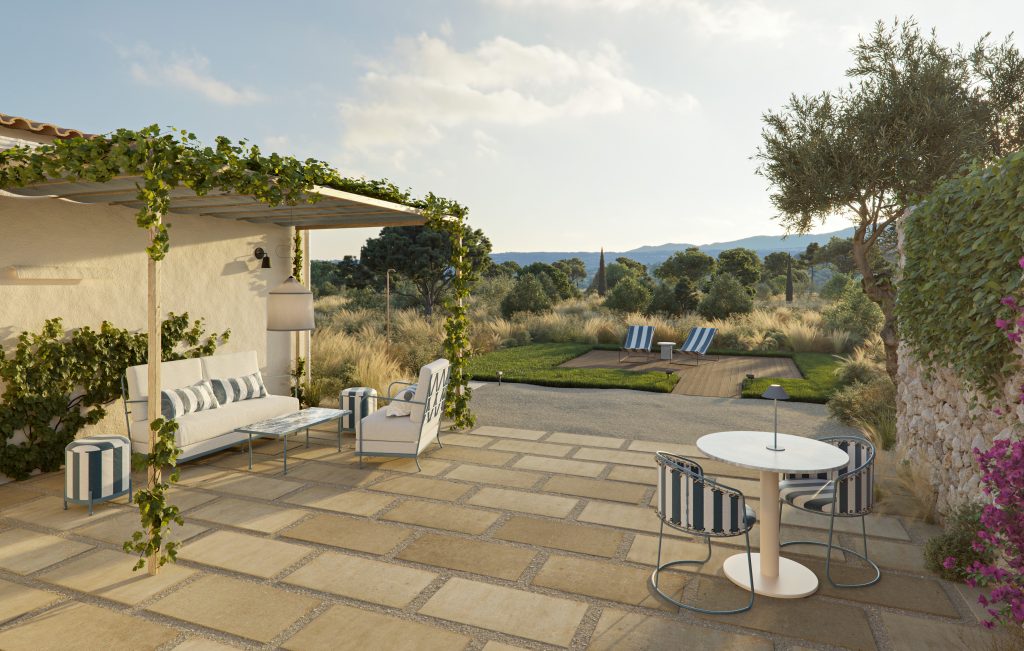
Select rooms feature private plunge pools or walled patios shaded by olive trees, offering a rare sense of privacy in the Mallorcan countryside.
Each space is layered with breathable materials—linen, stone, hand-thrown clay, and locally sourced wood. Light is a constant collaborator, shifting across surfaces through wooden shutters or filtering through pergolas, animating each room throughout the day.
Living Heritage, Lightly Held
At every level, Son Xotano celebrates Mallorcan identity as a vibrant, living tradition – rooted in authenticity and carried gracefully into the present. From textiles to tableware, the hotel celebrates the work of local artisans and makers, reinterpreted with freshness and restraint. Highlights include roba de llengües (traditional ikat patterns) used playfully on ceiling beams, and glass lighting from Gordiola, an 18th-century glassblowing atelier in Algaida.
This spirit of continuity extends to the land itself. The hotel’s landscape design, also led by Nieto Studio, draws from the traditions of Mediterranean agriculture. Ancient terraces and dry-stone cisterns have been respectfully restored. Native species — carob, olive, rosemary, fig — thrive under a xeriscape strategy that minimises water use supports biodiversity. Every planted detail reflects a long-term ecological vision that prioritises resilience over appearance.
Public Spaces with Private Energy
While the hotel invites solitude, it also creates moments of gentle gathering. At its heart is a restored lobby that feels more like a private home than a hotel entrance — quiet, elegant, unhurried. Just beyond, the piazza acts as a kind of informal town square, bringing together rooms, pathways, and culinary spaces in a natural architectural choreography.
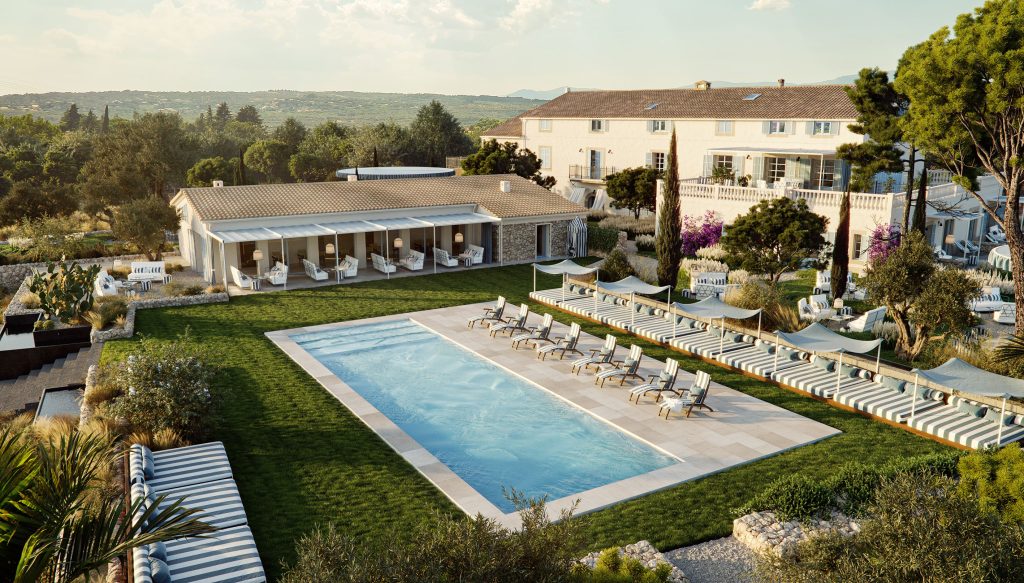
The pool is a central feature – long, low, and discreetly framed by dry-stone walls and tall cypresses.
The pool is lined with natural stone and flanked by linen-draped pergolas, it sits among the vineyards as though it has always belonged there. Guests can swim, sunbathe, or simply sit with a book as birdsong and breeze animate the surrounding land.
Soft music, dappled olive shade, and the aroma of freshly baked bread imbue the space with a lived-in warmth. Guests move through the estate much like wandering through a small Mediterranean hamlet, discovering secluded corners for reading, conversation, or quiet reflection. The subtle fragrance concept—lavender from the gardens, fig leaf, and sun-warmed stone—echoes the natural surroundings and deepens the sense of place.
Art is woven thoughtfully through the property, expressed through curated details. Sculptural furnishings, framed local photography, and bespoke artisan pieces create a quiet spatial poetry that rewards attention without ever demanding it.
A New Model of Wellness
Unlike conventional spas, Son Xotano’s approach to wellness is non-prescriptive, unbranded, and profoundly intuitive. Wellness unfolds naturally in shaded garden patios, where skilled therapists offer deeply restorative massages, including traditional Mallorcan techniques and reflexology sessions designed to realign energy and promote holistic balance. A pine-sheltered pavilion provides a serene space for yoga and mindful movement, complemented by the quiet luxury of time spent in stillness.
Wellness here begins with architecture: natural light, sound insulation, materials that breathe. Every surface and scent — lavender, fig leaf, warmed stone — is calibrated to support a slower rhythm. In-room treatments are tailored rather than scheduled, developed by therapists who listen before they touch.
Sustainability as a Practice, Not a Promise
In an era where sustainability is often reduced to rhetoric, Son Xotano distinguishes itself through action. The project began with preservation — the decision to restore, rather than rebuild — and every phase of the process has followed a principle of low intervention and long-term care. The original stone structure was retained in full, reducing the environmental impact of new construction. All building materials were locally sourced or reclaimed, from timber beams and antique tiles to ironwork and ceramics. The estate is oriented for passive cooling, with cross-ventilation and shaded walls reducing the need for mechanical systems. Traditional techniques are woven throughout, chosen for their inherent sustainability.
The surrounding land has been landscaped with native, drought-resistant flora, including fig, carob, wild lavender, and rosemary, eliminating the need for artificial irrigation. Rainwater harvesting systems support the estate’s gardens, while an on-site composting system supports soil health and vegetable production. Food is sourced within a fifteen-kilometre radius wherever possible, and kitchen operations are entirely plastic-free. Beyond its own boundaries, Son Xotano is collaborating with ecological organisations to restore several hectares of abandoned farmland nearby, reintroducing native plant species and supporting biodiversity regeneration over a five-year plan.
Energy efficiency is integrated seamlessly. Natural insulation, cross-ventilation, and traditional thermal systems reduce reliance on mechanical cooling. A rainwater harvesting system irrigates the orchards and kitchen gardens, while subtle pathways guide guests through a landscape that feels as though it has always existed — untouched, effortless, real.
ABOUT CLAPÉSPIZÀ ARCHITECTS
Based in Palma’s historic center, ClapésPizà is an architecture studio dedicated to contemporary design rooted in Mediterranean vernacular tradition. Founded by Joan Pizà Roca and Adrià Clapés i Nicolau, the firm specializes in preserving the authenticity of original structures while elevating them to modern standards of quality and comfort. Guided by a deep respect for local craftsmanship and materials, ClapésPizà prioritizes natural, breathable, and sustainable resources that enhance both human health and environmental well-being. Each project is approached as a collaborative endeavor, assembling tailored teams of specialists—from landscape architects and historians to artisans and builders—to create architecture that is profoundly local yet globally relevant. By engaging meaningfully with each site’s light, climate, materials, and culture, ClapésPizà crafts spaces that foster a genuine sense of place and enrich the experience of inhabiting them.
ABOUT VIRGINIA NIETO
Founded in Madrid by interior architect Virginia Nieto, the studio specializes in creating warm, elegant, and timeless interiors for homes, shops, and offices. Drawing inspiration from global travels, the studio crafts spaces that blend rich textures, natural materials, and carefully selected fabrics with modern, functional furniture to achieve welcoming and sophisticated environments. Virginia Nieto Studio’s approach emphasises a collaborative and detail-oriented process, from initial design to the careful selection of skilled artisans who bring each project to life. Their goal is to deliver personalised interiors that perfectly reflect the client’s needs, preferences, and vision.
ABOUT JOSÉ MARÍA BORRÁS
José María Borrás, born in Menorca in 1999, is an acclaimed chef celebrated for his creative, ingredient-driven cuisine deeply inspired by Menorcan traditions. After training at Barcelona’s prestigious Hofmann School and gaining experience with leading chefs such as Daniel Mora and Martín Berasategui, he became head chef at Santa Mariana, earning a Michelin Guide recommendation. In 2024, he was named Best Young Chef in Spain and Portugal by the S.Pellegrino Young Chef Academy and received the Acqua Panna Connection in Gastronomy Award. He leads the culinary direction for ANNUA Signature Hotels in Menorca, opening the restaurants Aquiara and Amagatay, where he continues to innovate while honoring local heritage. His achievements also include the Iris Gastronomy Award for sustainability and a nomination as Revelation Chef 2026 by José Carlos Capel.
ABOUT ANNUA SIGNATURE HOTELS
Founded by brothers Álvaro and Iñaki Sasiambarrena, Annua Signature Hotels is a collection of soulful, design-forward retreats across the Mediterranean. Each property blends contemporary aesthetics with deep respect for local culture, offering a slower, more intentional expression of luxury — where time expands, space breathes, and connection deepens. With intimate hotels in Lanzarote, Menorca, and now Mallorca, Annua creates places of quiet beauty and cultural authenticity. Every detail — from architecture and interiors to cuisine and experiences — is thoughtfully crafted to reflect the spirit of its surroundings. More than a hotel brand, Annua is a philosophy: intentional, human-centered hospitality for those seeking depth, calm, and the true luxury of time, well spent.



